Maine’s next Climate Action Plan is coming out later this year, and we all have an opportunity right now to help shape what it looks like by taking this survey.
In this blog, I’ll lay out why Maine’s statewide Climate Action Plan matters and give you some more details about the recommendations we’ll be asking for to strengthen our state’s official strategies for reducing pollution and making our communities more resilient.
What is “Maine Won’t Wait,” the statewide Climate Action Plan?
A bipartisan climate law passed in 2019 established new statutory goals for reducing annual greenhouse gas (GHG) emissions 45% by 2030 and 80% by 2050. It also created the Maine Climate Council and charged them with creating a statewide Climate Action Plan to set us on a path to achieve those goals.
Maine’s first climate action plan, Maine Won’t Wait, was published in 2020 after receiving extensive statewide input from residents, businesses, clean energy experts, and other community leaders. The strategies laid out in the plan are intended to serve as a pathway to achieve Maine’s climate goals while creating economic opportunities, preparing our communities for the impacts of climate change, and advancing equity.
Why are we updating the Climate Action Plan now?
The 2019 climate law set a schedule of updating the statewide plan every four years to reflect the latest science while identifying new key areas of growth. The 2024 plan will be the first update to the 2020 Maine Won’t Wait plan, providing the chance to assess our progress and move forward with a level of ambition that meets the moment.
What has been accomplished so far? Is the Plan working?
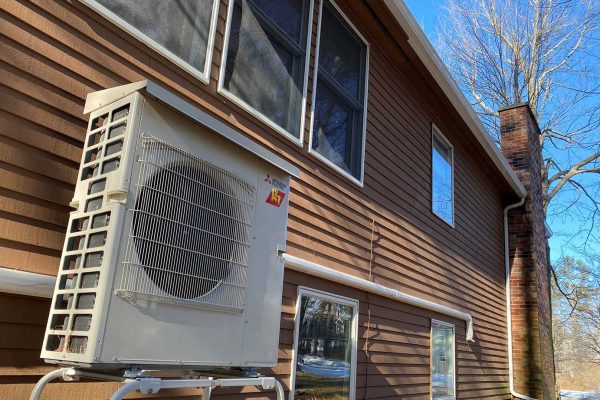
A heat pump installed in a Maine home
In the past four years, we’ve seen the power of Maine people coming together to take action on climate. This community-led effort has seen many successes, including installation of more than 115,000 heat pumps that save Mainers money and make their homes more comfortable, and witnessing thousands of people in more than 220 communities roll up their sleeves to implement local climate solutions through the Community Resilience Partnership.
Numerous policies have been put into place in the past four years, including new renewable energy standards and a grid planning process for utilities aligned with statutory climate and clean energy goals.
In 2023, a broad coalition of labor and environmental groups came together to pass a new law that calls for procuring three gigawatts of floating offshore wind power, and we’ve seen an exponential growth in reliable, home-grown solar energy that helps reduce pollution while reducing our dependence on expensive oil and gas.
This transition to homegrown clean energy is working, as shown by the Department of Environmental Protection’s most recent biennial report on greenhouse gas reduction.¹ In 2021, Maine’s annual emissions were 30% lower than in 1990, and despite a slight increase in 2022 due to a post-pandemic bump in activity, the state is still on track to hit its target of 80% below 1990 GHG levels by 2050 as long as the clean energy transition continues to accelerate.
How can we continue this progress in the next Climate Action Plan?
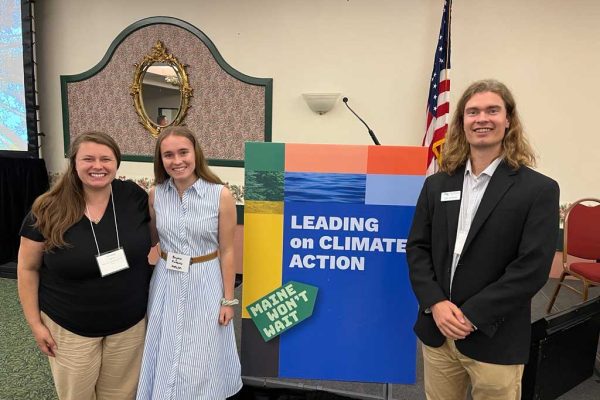
NRCM Sustainable Maine Program Manager Vanessa Berry (left), NRCM summer intern Brynne Robbins, and NRCM Climate & Clean Energy Policy Advocate Josh Caldwell. Vanessa and Josh are on two of the Maine Climate Council working groups (Materials Management and Transportation, respectively).
Since the first Climate Action Plan was published in 2020, the impacts of climate change have become more pronounced, causing damage to our infrastructure, harm to our communities, and interruptions to our way of life. There is much work still to be done to achieve the goals contained in Maine Won’t Wait and actualize a safe and prosperous future for Maine. The updated Climate Action Plan will play a critical role in guiding us toward that future.
Experts from the Natural Resources Council of Maine, and hundreds of other experts and community leaders, have participated in Maine Climate Council working groups over the past year to develop recommended strategies for this year’s update.
The Climate Action Plan is split into topic-areas according to Working Group. Below are some of our thoughts on the draft recommendations that have emerged from Working Groups so far.
Transportation
Maine’s largest-emitting sector, transportation is one of the toughest nuts to crack for climate, but given its importance, we must move quickly to meet our climate goals. We can do so in two primary ways: by driving electric, and by giving Mainers more transportation options besides driving. This year’s set of recommendations includes good ideas on both fronts but could be more ambitious given the scale of the task before us.
- The current recommendations don’t include specific targets for electric vehicle adoption across all vehicle classes, including Medium- and Heavy-Duty Vehicles. Including these targets will improve policy planning and accountability for the next four years. Encourage the Climate Council to set ambitious targets for electric vehicles across all vehicle classes based on forthcoming modeling.
- A strong commitment to modeling GHG emissions impacts and vehicle miles traveled (VMT) impacts for all new road capacity expansion projects, and ensuring any increase in GHG emissions or VMT is offset by investments in alternative options like active transportation or public transit. Encourage the Climate Council to commit to reducing GHG emissions and VMT and invest in public transit and active transportation.
Energy
The Energy Working Group brought forward a strong set of recommendations for Maine’s power sector, including decreasing energy burdens for all Mainers, advancing the buildout of clean energy resources like solar and offshore wind, and supporting policies that make our electric grid more flexible and reliable.
- In 2023, Governor Mills announced a new goal to get to 100% clean electricity generation by 2040, a decade earlier than previously required. Achieving this goal with new clean energy resources and the infrastructure needed to build and interconnect them to the grid will reduce Maine’s emissions more quickly, avoiding more severe climate impacts. Encourage the Climate Council to support timely and cost-effective planning and buildout of necessary clean energy infrastructure to meet state goals and statutory requirements including 100% clean electricity by 2040.
- Today’s energy burden is too high for many low- and moderate-income Mainers due to the high cost of fossil fuels. Transitioning to more efficient clean energy technologies can help if we undertake thoughtful planning and establish policies to reduce costs and help all Mainers benefit from electrification and energy efficiency investments. Encourage the Climate Council to reduce energy burdens for all Mainers by reducing clean energy financing barriers and implementing demand management and load flexibility strategies for our electric grid.
Materials Management
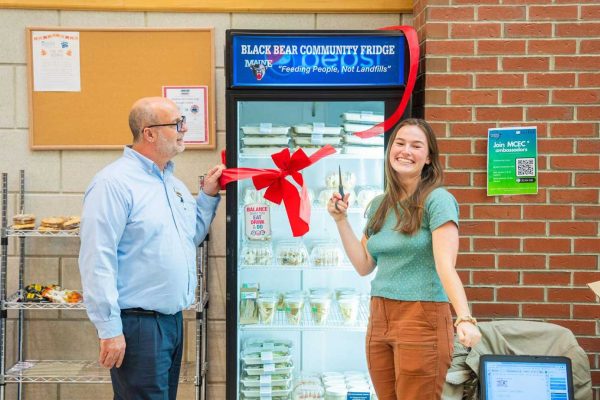
UMaine student Kate Flynn cuts the ribbon on a new community fridge in the student union at UMaine. Read more at www.maine.gov/climateplan/stories/counteracting-climate-change-through-food-kate-flynn (maine.gov photo)
Including a Materials Management Task Force in the Climate Action Plan process for the first time this year is a big step forward, and a recognition of the intersections between waste and climate issues.
- Our consumption patterns impact our emissions – products produced outside Maine but consumed here can have significant emissions embedded in them. Tracking and measuring consumption-based emissions will enable us to establish policies in the future that reduce the impact of our consumer habits. Encourage the Climate Council to commit to tracking and measuring consumption-based emissions.
- Investment in Maine’s circular economy and workforce can create jobs and economic benefits while reducing waste and emissions. Reuse creates 200 times more jobs as landfills and incinerators, and “train the trainer” programs, business incubators, and community college and technical school programs can grow the field of reuse. Encourage the Climate Council to invest in Maine’s circular economy and workforce.
Land Use Discussion Group
This year, a new intersectional group including members from all Climate Council working groups identified recommendations for how to build out clean energy infrastructure and respond to the impacts of climate change while maintaining Maine’s character and protecting the natural and built spaces that make this place special.
Maine is growing, and we must do so in a way that ensures safe and affordable housing and transportation services for all while minimizing our impact on natural resources and the climate. We can do that by planning for and prioritizing compact development at a human scale, promoting clean energy and electric grid investments in places that already have utility infrastructure, encouraging transit-oriented development and safe biking and walking, and protecting our natural and working lands. Encourage the Climate Council to prioritize smart growth through more compact development, community planning, climate-aligned zoning, and sensible siting of key community resources.
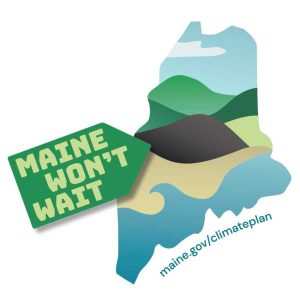
Now is your chance to make your voice heard and help us craft an ambitious Climate Action Plan for Maine.
Our changing climate is disruptive, and it can be a scary reality, but it also presents an enormous opportunity for us to come together to build a clean energy future that works for all Mainers. We’ve already seen that good things happen when Mainers come together to implement solutions that enable this brighter future. Practical solutions like heat pumps, weatherization, or electric school buses. Now it’s time to build on that progress!
Our collective response to the changes we are experiencing provides an opportunity to make meaningful improvements to our state for everyone in Maine, both for current and future generations. Join us in building a better future for Maine by taking the Maine Climate Action Plan survey (note, the survey is now closed).
—Josh Caldwell, NRCM Climate & Clean Energy Policy Advocate and Outreach Manager
Banner photo: Timber Point, Biddeford Pool, Rachel Carson National Wildlife Refuge, by Laura Pope







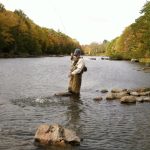




Hello, Josh;
I apologize for having missed the survey deadline.
If input is still being considered, I’d advocate for these two actions:
-Transportation: encourage mass transit, shuttles, and carpooling, instead of the Gorham Connector
-Materials Management: Develop/adopt a refillables program for use in grocery stores. (Please let me know if you’re aware of how I might contribute toward this way of reducing plastic generation; in the future, I hope to contribute by growing my own food again, and also hope to help others with that.)
Thank you,
Deann
Hi Deann, thank you so much for these thoughts! While the first round of feedback has closed, the Maine Climate Council will be releasing a draft for review and comment in the coming days. Stay updated at their website (https://www.maine.gov/future/climate/council), and we’ll be sure to incorporate your feedback into our comments shortly.
—Josh